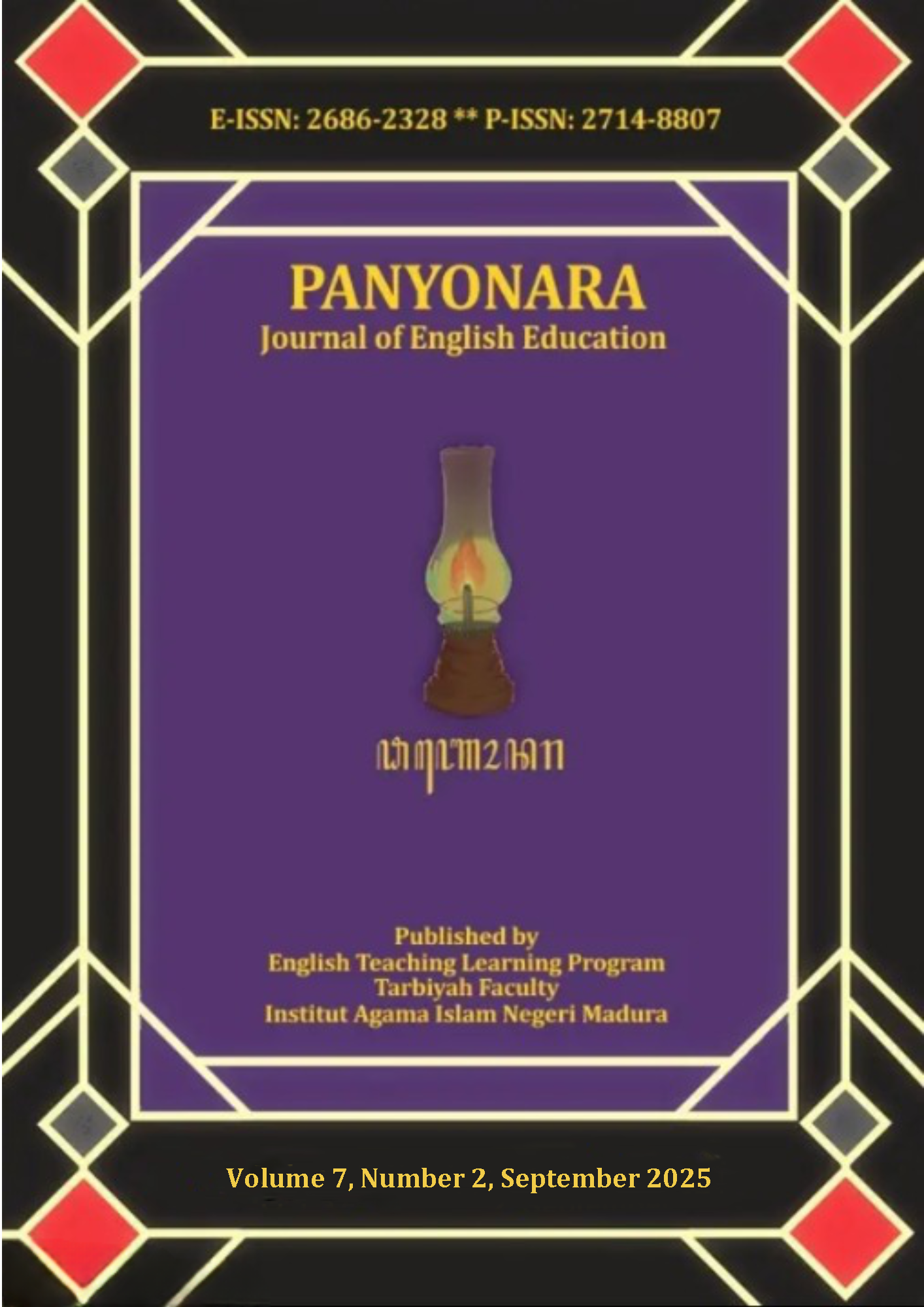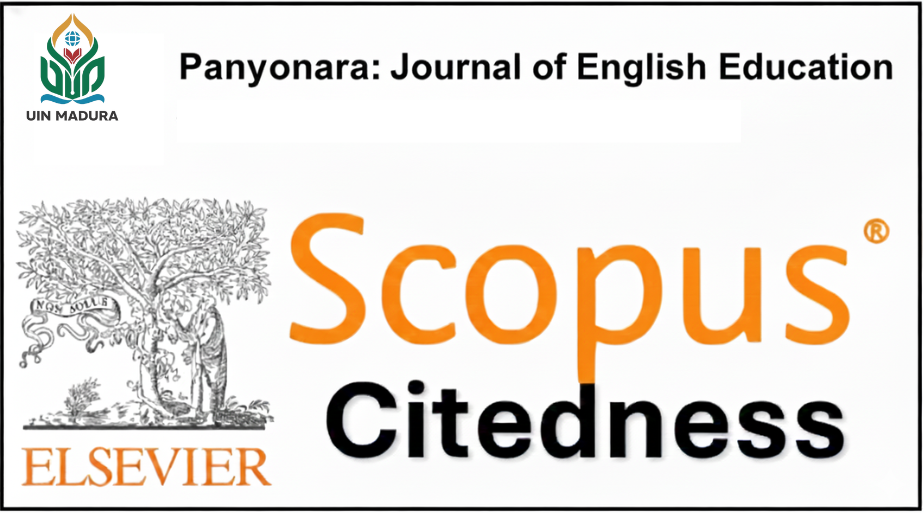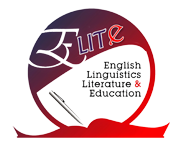Deep Learning Self-Regulation Strategies of Indonesian Learners of English as a Foreign Language
 Abstract views: 246
,
Abstract views: 246
,
 PDF downloads: 244
PDF downloads: 244
Abstract
In many Indonesian EFL classrooms, students still rely on teacher-directed, exam-oriented routines with limited explicit instruction on self-regulated learning. Self-Regulated Learning (SRL) strategies are critical for academic success, especially in English as a Foreign Language (EFL) contexts. In Indonesia, however, there remains limited research on the deep learning self-regulation strategies used by EFL learners and the impact of gender and academic grade level. This study explores the deep learning self-regulation strategies Indonesian higher education students use in learning English, focusing on gender and grade level differences. Using the Deep Learning Strategies Questionnaire (DLS-Q) and semi-structured interviews, the results show a moderate use of SRL strategies, with Basic Learning Strategies being the most frequent. These strategies involve task planning, goal setting, and self-monitoring. Summarizing and activating prior knowledge were more often utilized by male students through Basic Learning and Deep Information Processing Strategies compared to female students. On the other hand, females appeared to prefer Social Strategies such as group discussions and collaboration with peers. These, along with the lack of variation with grade level, were not significant from a statistical standpoint. This research proposes that employing Deep Learning Self-Regulated Learning (SRL) strategies, using visuals and reflective tools, may enhance student engagement during EFL instruction.
Downloads
References
Alhaysony, M. (2017). Language Learning Strategies Use by Saudi EFL Students: The Effect of Duration of English Language Study and Gender. Theory and Practice in Language Studies, 7(1), 18. https://doi.org/10.17507/tpls.0701.03
Apridayani, A., & Teo, A. (2021). The Interplay Among SRL Strategies, English Self-Efficacy, and English Proficiency of Thai University Students. Studies in English Language and Education, 8(3), 1123–1143. https://doi.org/10.24815/siele.v8i3.20213
Arooj, T., Ameer, I., & Kamran, M. (2022). Pre-Service Teachers’ Cognitive or Non-Cognitive Preferences: Variance in the Learning Strategies From the Lenses of Gender Category in Balochistan, Pakistan. Journal of Social Sciences Review, 2(4), 207–212. https://doi.org/10.54183/jssr.v2i4.66
Bandura, A., & Wessels, S. (1994). Self-efficacy (in Encyclopedia of Human Behavior) (Vol. 4). Academic Press.
Bećirović, S., Brdarević‐Čeljo, A., & Polz, E. (2021). Exploring the Relationship Between Language Learning Strategies, Academic Achievement, Grade Level, and Gender. Journal of Language and Education, 7(2), 93–106. https://doi.org/10.17323/jle.2021.10771
Cerezo, R., Fernández, E., Amieiro, N., Valle, A., Rosário, P., & Pérez, J. C. N. (2019). El Papel Mediador De La Autoeficacia Y La Utilidad Entre El Conocimiento Y El Uso De Estrategias De Autorregulación Del Aprendizaje. Revista De Psicodidáctica, 24(1), 1–8. https://doi.org/10.1016/j.psicod.2018.08.001
Chen, R. (2022). Motivations of Second Language Learning: Application of L2 Motivational Self System in the EFL Classroom. Journal of Higher Education Research, 3(1), 51. https://doi.org/10.32629/jher.v3i1.638
Dawn, S., Dominguez, K., Troutman, W. G., Bond, R., & Cone, C. (2011). Instructional Scaffolding to Improve Students’ Skills in Evaluating Clinical Literature. American Journal of Pharmaceutical Education, 75(4), 62. https://doi.org/10.5688/ajpe75462
Dignath, C., & Veenman, M. V. J. (2020). The Role of Direct Strategy Instruction and Indirect Activation of Self-Regulated Learning—Evidence From Classroom Observation Studies. Educational Psychology Review, 33(2), 489–533. https://doi.org/10.1007/s10648-020-09534-0
Elghotmy, H. E. A. (2023). Integrating Instructional Scaffolding Interaction Cycle Into Dialogic Teaching to Enhance EFL Listening and Speaking Skills Among Faculty of Education Sophomores. Majallat Kullīyat al-Tarbiyah - Jāmiʿat al-Munūfiyyah 2023(1), 1–44. https://doi.org/10.21608/muja.2023.288089
Flavell, J. H. (1979). Metacognition and Cognitive Monitoring: A New Area of Cognitive–Developmental Inquiry. American Psychologist, 34(10), 906.
Fostervold, K. I., Ludvigsen, S., & Strømsø, H. I. (2022). Students’ Time Management and Procrastination in the Wake of the Pandemic. Educational Psychology, 42(10), 1223–1240. https://doi.org/10.1080/01443410.2022.2102582
Golub, T. L., Petričević, E., & Rovan, D. (2019). The Role of Personality in Motivational Regulation and Academic Procrastination. Educational Psychology, 39(4), 550–568. https://doi.org/10.1080/01443410.2018.1537479
Haataja, E., Malmberg, J., Dindar, M., & Järvelä, S. (2021). The Pivotal Role of Monitoring for Collaborative Problem Solving Seen in Interaction, Performance, and Interpersonal Physiology. Metacognition and Learning, 17(1), 241–268. https://doi.org/10.1007/s11409-021-09279-3
Habók, A., Magyar, A., & Molnár, G. (2022). English as a Foreign Language Learners’ Strategy Awareness Across Proficiency Levels From the Perspective of Self-Regulated Learning Metafactors. Frontiers in Psychology, 13. https://doi.org/10.3389/fpsyg.2022.1019561
Hao, X., & Hua, C. (2024). The Effect of Co-Regulation on English Public Speaking Self-Efficacy in Collaborative Oral Presentations. Frontiers in Psychology, 15. https://doi.org/10.3389/fpsyg.2024.1423607
Hartono, H., & Diasti, K. S. (2023). EFL students’ self-regulation in online learning during the Covid-19 pandemic. PANYONARA: Journal of English Education, 5(1), 90–100. https://doi.org/10.19105/panyonara.v5i1.8254
Heydarnejad, T., Ismail, S. M., Shakibaei, G., & Saeedian, A. (2022). Modeling the Impact of L2 Grit on EFL Learners’ Core of Self-Assessment and Foreign Language Anxiety. Language Testing in Asia, 12(1). https://doi.org/10.1186/s40468-022-00200-6
Higgs, K., Santuzzi, A. M., Gibson, C., Kopatich, R. D., Feller, D., & Magliano, J. P. (2023). Relationships Between Task Awareness, Comprehension Strategies, and Literacy Outcomes. Frontiers in Psychology, 14. https://doi.org/10.3389/fpsyg.2023.1056457
Hu, X., Sidhu, G. K., & Xin, L. (2022). Relationship Between Growth Mindset and English Language Performance Among Chinese EFL University Students: The Mediating Roles of Grit and Foreign Language Enjoyment. Frontiers in Psychology, 13. https://doi.org/10.3389/fpsyg.2022.935506
Ismail, S. M., Nikpoo, I., & Prasad, K. D. V. (2023). Promoting Self-Regulated Learning, Autonomy, and Self-Efficacy of EFL Learners Through Authentic Assessment in EFL Classrooms. Language Testing in Asia, 13(1). https://doi.org/10.1186/s40468-023-00239-z
Jiang, R. (2022). Understanding, Investigating, and Promoting Deep Learning in Language Education: A Survey on Chinese College Students’ Deep Learning in the Online EFL Teaching Context. Frontiers in Psychology, 13. https://doi.org/10.3389/fpsyg.2022.955565
John W. Creswell & Timothy C. Guetterman. (2018). Educational Research_ Planning, Conducting, and Evaluating Quantitative and Qualitative Research. 6th ed. (2018, Pearson).
Johnson, E. (2018). Exemplary Reading Teachers’ Use of Instructional Scaffolds With Emergent Bilinguals: How Knowledge and Context Shape Their Choices. Tesol Quarterly, 53(1), 108–132. https://doi.org/10.1002/tesq.471
Kumar, T., Soozandehfar, S. M. A., Hashemifardnia, A., & Mombeini, R. (2023). Self vs. Peer Assessment Activities in EFL-speaking Classes: Impacts on Students’ Self-Regulated Learning, Critical Thinking, and Problem-Solving Skills. Language Testing in Asia, 13(1). https://doi.org/10.1186/s40468-023-00251-3
Li, H. (2023). Perceived Teacher-Student Relationship and Growth Mindset as Predictors of Student Engagement in Foreign Student Engagement in Foreign Language Learning: The Mediating Role of Foreign Language Enjoyment. Frontiers in Psychology, 14. https://doi.org/10.3389/fpsyg.2023.1177223
Li, H. (2024). School Environment, Cooperative Learning and English Language Deep Learning Strategy Among Chinese College Students. International Journal of Research Studies in Language Learning, 10(1). https://doi.org/10.5861/ijrsll.2024.007
Lin, S., Mastrokoukou, S., Longobardi, C., Bozzato, P., Gastaldi, F. G. M., & Berchiatti, M. (2023). Students’ transition into higher education: The role of self‐efficacy, regulation strategies, and academic achievements. Higher Education Quarterly, 77(1), 121–137.
Loon, M. H. v., Bayard, N. S., Steiner, M., & Roebers, C. M. (2021). Connecting Teachers’ Classroom Instructions With Children’s Metacognition and Learning in Elementary School. Metacognition and Learning, 16(3), 623–650. https://doi.org/10.1007/s11409-020-09248-2
Mahalingam, K., & Yunus, M. M. (2016). Good Language Learners and Their Strategies: An Insight. Proceedings of the Icecrs, 1(1). https://doi.org/10.21070/picecrs.v1i1.504
Mahmud, Y. S., & German, E. (2021). Online Self-Regulated Learning Strategies Amid a Global Pandemic: Insights From Indonesian University Students. Malaysian Journal of Learning and Instruction, 18(2), 45–68. https://doi.org/10.32890/mjli2021.18.2.2
Martin, N. D., Tissenbaum, C. D., Gnesdilow, D., & Puntambekar, S. (2018). Fading Distributed Scaffolds: The Importance of Complementarity Between Teacher and Material Scaffolds. Instructional Science, 47(1), 69–98. https://doi.org/10.1007/s11251-018-9474-0
Marton, F., & Säljö, R. (1976). On qualitative differences in learning: I—Outcome and process. British Journal of Educational Psychology, 46(1), 4–11.
Matsuo, M. (2024). A Revised Model of Cognitive Apprenticeship: A Qualitative Study. International Journal of Training and Development, 28(4), 454–472. https://doi.org/10.1111/ijtd.12336
Mbarute, E. S., Masengesho, L., & Ntivuguruzwa, C. (2023). Effects of Cooperative Learning Strategy on Students’ Academic Achievement in Physics. Journal of Research Innovation and Implications in Education, 350–357. https://doi.org/10.59765/nbcp2943.
Nadeak, A. L., & Kuswandono, P. (2024). Motivation-regulation Strategies for English Academic Reading among Undergraduate Students at a Private University. Jurnal Pendidikan Bahasa Inggris Undiksha, 12(2), 255–263. https://doi.org/10.23887/jpbi.v12i2.83421
Nong, W., Ye, J., Chen, P., & Lee, Y.-S. (2023). A Study on the Blended Learning Effects on Students Majoring in Preschool Education in the Post-Pandemic Era: An Example of a Research-Method Course in a Chinese University. Frontiers in Psychology, 13. https://doi.org/10.3389/fpsyg.2022.962707
Nourazar, S., Kakvand, R., & Aliasin, S. H. (2022). The Impact of Scaffolded Metacognitive Writing Strategy Instruction on Iranian Intermediate EFL Learners’ IELTS Writing Task 2. Education Research International, 2022, 1–8. https://doi.org/10.1155/2022/6297895
Panadero, E. (2017). A Review of Self-Regulated Learning: Six Models and Four Directions for Research. Frontiers in Psychology, 8. https://doi.org/10.3389/fpsyg.2017.00422
Panadero, E., Alonso‐Tapia, J., García-Pérez, D., Fraile, J., Galán, J. M. S., & Pardo, R. (2021a). Deep Learning Self-Regulation Strategies: Validation of a Situational Model and Its Questionnaire. Revista De Psicodidáctica (English Ed ), 26(1), 10–19. https://doi.org/10.1016/j.psicoe.2020.11.003
Panadero, E., Alonso‐Tapia, J., García-Pérez, D., Fraile, J., Galán, J. M. S., & Pardo, R. (2021b). Estrategias De Aprendizaje Profundas: Validación De Un Modelo Situacional Y Su Cuestionario. Revista De Psicodidáctica, 26(1), 10–19. https://doi.org/10.1016/j.psicod.2020.11.003
Pintrich, P. R. (2004). A Conceptual Framework for Assessing Motivation and Self-Regulated Learning in College Students. Educational Psychology Review, 16(4), 385–407. https://doi.org/10.1007/s10648-004-0006-x
Porras, J. F. C. (2021). Self-Regulated Learning and Academic Stress in University Students. Revista Gestão Inovação E Tecnologias, 11(3), 719–726. https://doi.org/10.47059/revistageintec.v11i3.1970
Pourdana, N., & Tavassoli, K. (2022). Differential Impacts of E-Portfolio Assessment on Language Learners’ Engagement Modes and Genre-Based Writing Improvement. Language Testing in Asia, 12(1). https://doi.org/10.1186/s40468-022-00156-7
Rahmawati, K., & Ummah, S. S. (2020). The Comparison between Male and Female Students in Reading Comprehension Achievement at the Third Semester of TBI STAIN Pamekasan. PANYONARA: Journal of English Education, 2(1), 69. https://doi.org/10.19105/panyonara.v2i1.3126
Ritonga, M., Tazik, K., Omar, A., & Dehkordi, E. S. (2022). Assessment and Language Improvement: The Effect of Peer Assessment (PA) on Reading Comprehension, Reading Motivation, and Vocabulary Learning Among EFL Learners. Language Testing in Asia, 12(1). https://doi.org/10.1186/s40468-022-00188-z
Rosyada, A., & Sundari, H. (2021). Learning From Home Environment: Academic Writing Course for EFL Undergraduates Through Google Classroom Application. Studies in English Language and Education, 8(2), 710–725. https://doi.org/10.24815/siele.v8i2.18374
Sani, S., & Ismail, H. H. (2021). Assessing the Use of Learning Strategies Among Young Malaysian English as Second Language Learners. Creative Education, 12(09), 2124–2145. https://doi.org/10.4236/ce.2021.129163
Schunk, D. H. (2005). Self-Regulated Learning: The Educational Legacy of Paul R. Pintrich. Educational Psychologist, 40(2), 85–94. https://doi.org/10.1207/s15326985ep4002_3
Şeker, M. (2016). The Use of Self-Regulation Strategies by Foreign Language Learners and Its Role in Language Achievement. Language Teaching Research, 20(5), 600–618. https://doi.org/10.1177/1362168815578550
Smyth, L., Mavor, K. I., & Platow, M. J. (2018). Social Identification and Academic Performance: Integrating Two Existing Models of Tertiary Student Learning. Educational Psychology, 39(3), 409–425. https://doi.org/10.1080/01443410.2018.1524853
Sun, Q., & Zhang, L. J. (2022). Understanding Learners’ Metacognitive Experiences in Learning to Write in English as a Foreign Language: A Structural Equation Modeling Approach. Frontiers in Psychology, 13. https://doi.org/10.3389/fpsyg.2022.986301
Sun, Q., Zhang, L. J., & Carter, S. (2021). Investigating Students’ Metacognitive Experiences: Insights From the English as a Foreign Language Learners’ Writing Metacognitive Experiences Questionnaire (EFLLWMEQ). Frontiers in Psychology, 12. https://doi.org/10.3389/fpsyg.2021.744842
Takarroucht, K. (2022). The Effect of Self-Assessment on the Development of EFL Writing Self-Efficacy: A Case of Algerian Higher Education. International Journal of Language Education, 6(2), 157. https://doi.org/10.26858/ijole.v6i2.22065
Teng, M. F., Qin, C., & Wang, C. (2021). Validation of Metacognitive Academic Writing Strategies and the Predictive Effects on Academic Writing Performance in a Foreign Language Context. Metacognition and Learning, 17(1), 167–190. https://doi.org/10.1007/s11409-021-09278-4
Tran, N. T. N. (2021). The Relationship Between Language Learning Strategies and Gender in Learning English as a Second or Foreign Language. Journal of English Language Teaching and Applied Linguistics, 3(6), 120–126. https://doi.org/10.32996/jeltal.2021.3.6.17
Üner, A., Mouratidis, A., & Kalender, İ. (2020). Study Efforts, Learning Strategies and Test Anxiety When Striving for Language Competence: The Role of Utility Value, Self-Efficacy, and Reasons for Learning English. Educational Psychology, 40(6), 781–799. https://doi.org/10.1080/01443410.2020.1736989
Wang, C., Zhu, S., & Ma, B. (2021). A Study on English Learning Strategies of University Students in Hong Kong. Asian Englishes, 25(3), 376–390. https://doi.org/10.1080/13488678.2021.1945182
Wang, X., & Gunaban, M. G. B. (2023). Effectiveness of Mobile-Assisted Language Learning in Enhancing the English Proficiency. Journal of Contemporary Educational Research, 7(11), 140–146. https://doi.org/10.26689/jcer.v7i11.5588
Wigfield, A., Zusho, A., & Groot, E. V. D. (2005). Introduction: Paul R. Pintrich’s Contributions to Educational Psychology: An Enduring Legacy. Educational Psychologist, 40(2), 67–74. https://doi.org/10.1207/s15326985ep4002_1
Yaguarema, M., R., J. Z., & Salavarría, M. (2022). Analysis of the Deep Learning Strategies Questionnaire With Ecuadorian Students. Frontiers in Education, 7. https://doi.org/10.3389/feduc.2022.1004874
Yang, L., Liu, Y., & Xu, Z. (2022). Examining the Effects of Self-Regulated Learning-Based Teacher Feedback on English-as-a-Foreign-Language Learners’ Self-Regulated Writing Strategies and Writing Performance. Frontiers in Psychology, 13. https://doi.org/10.3389/fpsyg.2022.1027266
Yu, B. (2024). A Correlation Study of Individual Differences Factors and Oral Chinese Learning Strategies: A Survey Based on Sri Lankan Learners. SHS Web of Conferences, 185, 1009. https://doi.org/10.1051/shsconf/202418501009
Yustitiasari, H. (2020). The Relationship Between Language Learning Strategies and Vocational Learners’ Efl Proficiency. Lingual Journal of Language and Culture, 8(2), 39. https://doi.org/10.24843/ljlc.2019.v08.i02.p07
Zárate-Santana, Z.-J., Patino‐Alonso, M. C., García, A. B. S., & Galindo‐Villardón, P. (2021). Learning Approaches and Coping With Academic Stress for Sustainability Teaching: Connections Through Canonical Correspondence Analysis. Sustainability, 13(2), 852. https://doi.org/10.3390/su13020852
Zhang, W., & Wilson, A. (2023). From Self-Regulated Learning to Computer-Delivered Integrated Speaking Testing: Does Monitoring Always Monitor? Frontiers in Psychology, 14. https://doi.org/10.3389/fpsyg.2023.1028754
Zhang, Y., Li, M., Chieh, Y., & Han, S. (2022). On a Path to Becoming More Self-Regulated: Reflective Journals’ Impact on Chinese English as a Foreign Language Students’ Self-Regulated Writing Strategy Use. Frontiers in Psychology, 13. https://doi.org/10.3389/fpsyg.2022.1042031
Zimmerman, B. (1990). Goal Setting and Self-Efficacy During Self-Regulated Learning. Educational Psychologist, 25(1), 3–17. https://doi.org/10.1207/s15326985ep2501
The journal uses an Open Access policy under a Creative Commons Attribution-NonCommercial 4.0 International License. Authors who publish with this journal agree to the following terms:
- Authors retain copyright and grant the journal right of first publication with the work simultaneously licensed under a Creative Commons Attribution License that allows others to share the work with an acknowledgment of the work's authorship and initial publication in this journal.
- Authors are able to enter into separate, additional contractual arrangements for the non-exclusive distribution of the journal's published version of the work (e.g., post it to an institutional repository or publish it in a book), with an acknowledgment of its initial publication in this journal.
- Authors are permitted and encouraged to post their work online (e.g., in institutional repositories or on their website) prior to and during the submission process, as it can lead to productive exchanges, as well as earlier and greater citation of published work.

















